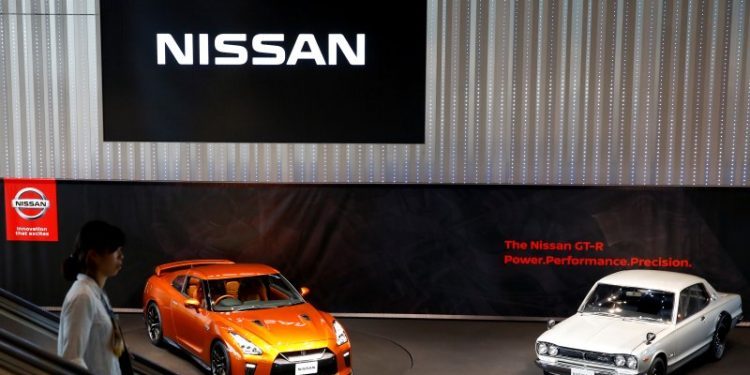Investing.com — The November U.S. presidential election presents major implications for Japanese automakers, as both the candidates’ policies on climate change, trade, and regulations will directly influence the industry.
Analysts at Citi Research have explored how the election outcome—whether a victory for Donald Trump or Kamala Harris—could reshape the environment for these automakers, particularly regarding electric vehicle (EV) adoption, environmental regulations, and trade relations.
As per Citi, a Trump victory is likely to lead to a relaxation of federal greenhouse gas and Corporate Average Fuel Economy regulations. Under his administration, California’s Advanced Clean Cars II regulations, which are slated to impose much stricter zero-emission vehicle mandates, could be nullified.
This would ease the pressure on automakers to transition rapidly to EVs, as they would no longer face the looming threat of penalties for non-compliance.
The financial risk of failing to meet these targets would be significantly reduced, offering immediate relief to companies that are struggling to accelerate ZEV production.
However, while Trump has shown some support for EVs, he has expressed a preference for market-driven outcomes rather than government-mandated targets.
His stance on revoking EV tax credits under the Inflation Reduction Act could slow the pace of EV adoption in the U.S.
Without these incentives, the economic case for buying EVs weakens, potentially impacting demand. For Japanese automakers, this presents a mixed scenario.
The pressure to innovate and roll out new EV models may lessen, allowing them to focus on improving existing gasoline and hybrid vehicle lines.
At the same time, their long-term competitiveness in the EV market could suffer if global momentum shifts heavily toward electrification, as expected in regions like Europe and China.
Trade is another key area of concern. Trump’s protectionist approach would likely resurface, with an emphasis on imposing tariffs on imports, particularly those from Mexico.
For Japanese automakers like Mazda and Nissan (OTC:NSANY), which have significant production facilities in Mexico, this poses a serious risk. They could face higher costs if tariffs on Mexican-made vehicles are implemented, making their products less competitive in the U.S. market.
This would disproportionately affect companies that rely heavily on Mexico for production and have less localized manufacturing in the U.S. Conversely, Honda (NYSE:HMC), with its high local sourcing and production levels in the U.S., would be better positioned to weather such trade restrictions.
On the other hand, a Harris victory would maintain the continuity of current climate policies, reinforcing the regulatory frameworks that are pushing automakers toward a greener future.
Under Harris, the federal greenhouse gas and Corporate Average Fuel Economy regulations would remain stringent, and California’s ACCII regulations, which set steep ZEV sales targets starting in 2026, would be fully enforced.
This would likely create a challenging environment for Japanese automakers, particularly those lagging in EV development. Companies like Mazda, Subaru (OTC:FUJHY), and Nissan—which currently have low ZEV sales—could face substantial financial penalties if they fail to comply with these regulations.
The penalties are big, with potential fines of up to $20,000 per vehicle for non-compliance, a cost that could severely impact their bottom lines, the analysts said.
For automakers with a more advanced EV strategy, such as Toyota (NYSE:TM) and Honda, the impact of a Harris administration may be less severe.
These companies are better positioned to meet ZEV sales targets and have already made substantial investments in hybrid and electric vehicles.
Toyota, for instance, has long advocated for a multi-pathway approach that includes hybrids and plug-in hybrids, which could prove advantageous as the U.S. struggles to meet ambitious EV sales goals.
Nevertheless, even under a Democratic administration, the gap between regulatory targets and actual EV sales is widening.
The market for battery electric vehicles (BEVs) in the U.S. is still developing, with BEVs currently accounting for only around 8% of the total market.
As the regulatory demands increase, there is a real risk that automakers will be unable to scale ZEV production at the pace required, which could prompt the government to reconsider the severity of penalties.
Yet, Harris’ strong commitment to climate change initiatives and support for California’s autonomy over its environmental policies suggest that easing these regulations is unlikely.
Trade policy would also play a major role under a Harris administration, particularly in relation to China.
The current Democratic administration has maintained a firm stance on reducing reliance on Chinese-manufactured components, particularly in the EV supply chain.
This could lead to further challenges for automakers who depend on Chinese imports for batteries and other EV parts.
While this does not directly impact Japanese automakers as severely as U.S. automakers, the global supply chain constraints could still pose operational challenges.





